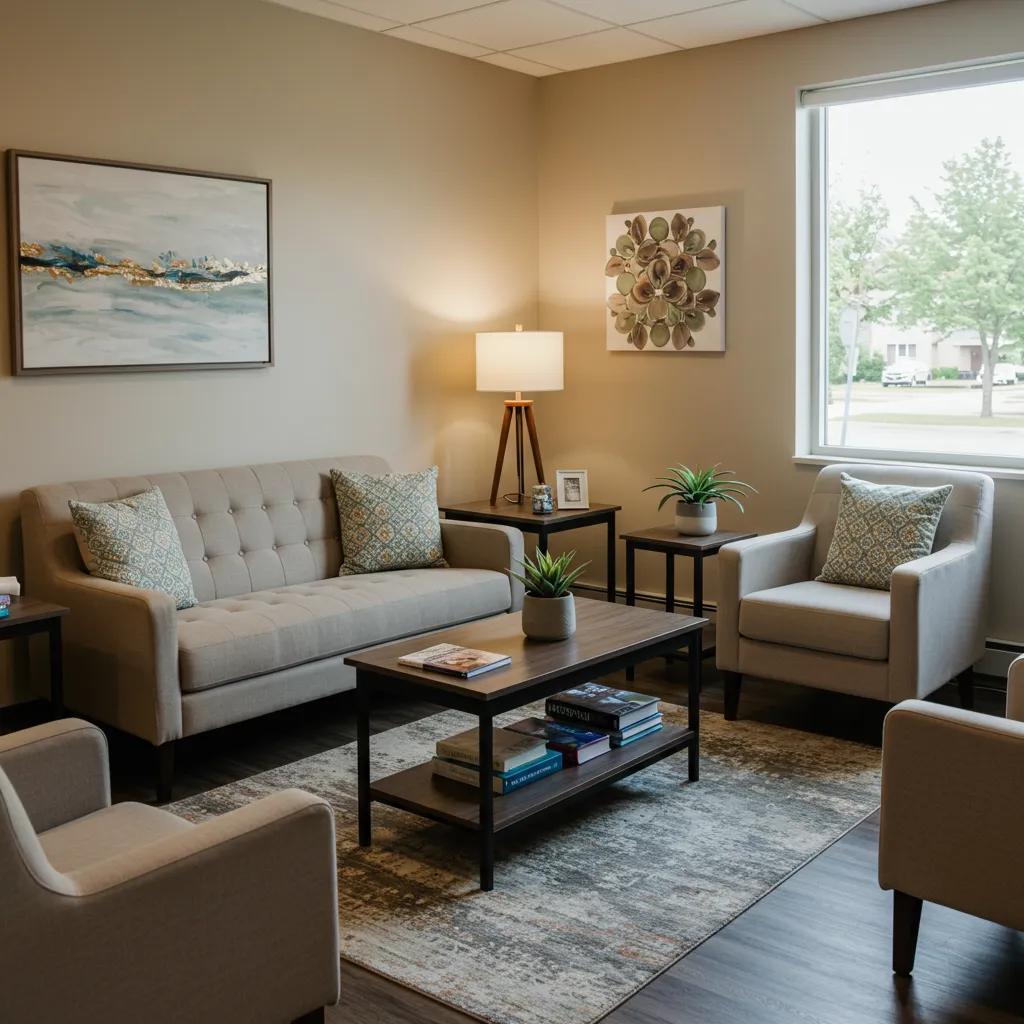Understanding Anorexia Nervosa
Anorexia nervosa is a serious eating disorder characterized by a fixation on food, weight, and body image. Individuals with anorexia nervosa have an intense fear of weight gain and engage in severe food intake restriction, leading to significant weight loss. This disorder negatively impacts physical, mental, and emotional well-being.
Definition and Characteristics
Anorexia nervosa is classified as a mental health concern in the DSM-5 (Diagnostic and Statistical Manual of Mental Disorders). It is defined by restricting energy intake relative to what someone normally needs for their age, gender, health, and developmental stage. Individuals with anorexia nervosa often have a distorted body image and perceive themselves as overweight, even when they are significantly underweight. They may exhibit behaviors such as strict dieting, excessive exercise, and self-induced vomiting to control their weight.
Impact on Mental Health
Anorexia nervosa has a profound impact on mental health. It not only affects a person’s relationship with food but also leads to changes in brain structure, neurotransmitter activity, hormone levels, and various emotional and behavioral symptoms. The disorder is associated with high levels of anxiety, depression, irritability, and social withdrawal. These mental health challenges often contribute to the perpetuation of the disorder and make recovery a complex process.
It is important to understand that anorexia nervosa is not solely about food; it is an unhealthy and sometimes life-threatening way to cope with emotional problems. Individuals with anorexia often equate thinness with self-worth. The intense focus on weight and body image becomes a central part of their identity, leading to a multitude of mental health issues.
To address the complexities of anorexia nervosa and its impact on mental health, comprehensive treatment is essential. This typically involves a multidisciplinary approach that includes medical professionals, therapists, dietitians, and other healthcare providers. Treatment aims to restore a healthy relationship with food, address underlying emotional issues, and support overall well-being.
Understanding and recognizing the characteristics and mental health implications of anorexia nervosa is crucial for early intervention and effective treatment. If you or someone you know is struggling with anorexia nervosa, it is important to seek help from professionals who specialize in eating disorders. For resources and support, organizations like the National Eating Disorders Association (NEDA) offer valuable assistance to individuals and their families.
Co-Occurring Conditions
Anorexia nervosa, classified as a mental health concern, affects not only a person’s physical health but also their mental well-being. It is important to recognize that anorexia nervosa often co-occurs with other psychiatric disorders, creating complex relationships and influencing each other [1]. In this section, we will explore the common psychiatric disorders that frequently co-occur with anorexia nervosa and examine the complex nature of these relationships.
Common Psychiatric Disorders
Studies have shown that approximately 83.7% of individuals with anorexia nervosa experience another psychiatric disorder at some point during their lives. The co-occurring conditions often include:
Depression: Anorexia nervosa can be associated with depressive symptoms, such as persistent feelings of sadness, loss of interest or pleasure in activities, changes in appetite, and sleep disturbances.
Anxiety Disorders: Individuals with anorexia nervosa may also experience anxiety disorders, including generalized anxiety disorder (GAD), panic disorder, social anxiety disorder, or obsessive-compulsive disorder (OCD). These conditions often contribute to the development and maintenance of disordered eating behaviors.
Obsessive-Compulsive Disorder (OCD): OCD commonly co-occurs with anorexia nervosa, as individuals may engage in obsessive thoughts and repetitive behaviors related to food, weight, and body image.
Substance Use Disorders: Substance use disorders, such as alcohol or drug abuse, can co-occur with anorexia nervosa. Substance use may serve as a coping mechanism or attempt to control emotions associated with the eating disorder.
Complex Relationships
Anorexia nervosa and co-occurring psychiatric disorders often develop together and influence each other in complex ways. The presence of multiple disorders can complicate the treatment process and require a comprehensive approach to address all aspects of an individual’s mental health.
For example, depression and anxiety disorders can contribute to the onset and maintenance of anorexia nervosa, as individuals may use extreme dieting and weight loss as a way to cope with negative emotions or to regain a sense of control. Conversely, the severe food restriction and malnutrition associated with anorexia nervosa can worsen depressive and anxiety symptoms.
Understanding the intertwined nature of these mental health conditions is crucial in providing effective treatment for individuals with anorexia nervosa. A comprehensive treatment approach that addresses not only the eating disorder but also the co-occurring psychiatric disorders is essential for promoting long-term recovery and improving overall well-being.
If you or someone you know is struggling with anorexia nervosa or any other eating disorder, seeking professional help from qualified treatment providers is vital. Resources such as the National Eating Disorders Association (NEDA) can provide valuable information and connect individuals with appropriate support. Remember, recovery is possible, and with the right support and treatment, individuals can regain control of their lives and achieve lasting wellness.
Physical Consequences
Anorexia nervosa, a serious eating disorder, not only affects mental health but also has significant physical consequences. Two key areas of physical impact are the effects on brain structure and hormonal imbalances.
Effects on Brain Structure
Anorexia nervosa can have a profound impact on brain structure and function. The brain is particularly affected by the severe nutritional deficiencies and weight loss associated with this eating disorder. Research has shown that anorexia nervosa leads to changes in brain structure, neurotransmitter activity, and various emotional and behavioral symptoms.
Furthermore, the brain adapts to the limited intake of food by reducing the size and volume of certain brain regions. These structural changes can contribute to the persistence of restrictive eating behaviors and the difficulty individuals with anorexia nervosa experience when trying to recover from the disorder.
Hormonal Imbalances
Anorexia nervosa can profoundly disrupt the normal functioning of the endocrine system, leading to hormonal imbalances. One of the most common hormonal consequences of anorexia nervosa is the loss of menstrual periods, known as amenorrhea. The body’s adjustments to a severely limited diet can throw off the endocrine system, and the body may direct resources away from maintaining the menstrual cycle. This happens when the body detects low body fat and perceives it as not being an optimal time for conception.
In addition to menstrual disruptions, anorexia nervosa can lead to imbalances in other hormones, such as cortisol and thyroid hormones. These imbalances can have wide-ranging effects on the body, including changes in bone density, metabolism, and energy regulation. It is essential to address these hormonal imbalances as part of the treatment and recovery process.
It’s crucial to recognize that anorexia nervosa can have severe physical consequences, and in some cases, it can be life-threatening. Even when individuals with anorexia nervosa are not severely underweight, abnormal heart rhythms (arrhythmias) or electrolyte imbalances can result in sudden death. Seeking help and support from healthcare professionals specializing in eating disorders is essential to address both the physical and mental aspects of anorexia nervosa.
For those seeking more information and resources on anorexia nervosa, organizations like the National Eating Disorders Association (NEDA) offer valuable support. Treatment providers specializing in eating disorders can provide comprehensive care, including therapy and ongoing support for individuals on their journey towards recovery.
Get your question answered now.
Risk Factors and Causes
Understanding the risk factors and causes of anorexia nervosa goes beyond the misconception that it is solely about extreme dieting. It is a complex mental health disorder with various influences and underlying factors.
Biological, Psychological, and Environmental Influences
Anorexia nervosa is believed to arise from a combination of biological, psychological, and environmental factors. While the exact cause is unknown, these influences contribute to the development of the disorder.
Biologically, there may be genetic predispositions that make certain individuals more susceptible to anorexia nervosa. Research suggests that there is a higher likelihood of developing the disorder if a close family member has experienced it [2]. Additionally, changes in brain chemistry and structure play a role in the development and maintenance of anorexia nervosa. These alterations can affect mood, appetite regulation, and body image perception.
Psychologically, individuals with anorexia nervosa often struggle with low self-esteem, perfectionism, and a distorted body image. They may equate thinness with self-worth, and controlling their food intake may provide a sense of control and accomplishment. Emotional health plays a significant role, and anorexia nervosa can be viewed as an unhealthy coping mechanism for underlying emotional problems [2].
Environmental factors also contribute to the development of anorexia nervosa. Societal expectations, cultural pressures, and exposure to media portrayals of thinness can influence body image perception and contribute to disordered eating behaviors. Stressful life changes, such as puberty, academic stress, or significant life transitions, can also trigger the onset of anorexia nervosa.
Genetics and Emotional Health
Genetics play a role in the development of anorexia nervosa, with certain individuals being more genetically predisposed to the disorder. Having a close family member who has experienced anorexia nervosa increases the likelihood of developing the condition.
Emotional health also plays a significant role in the development of anorexia nervosa. Individuals with the disorder often struggle with low self-esteem, perfectionism, and feelings of inadequacy. They may use restrictive eating as a way to gain a sense of control and cope with underlying emotional challenges. It is essential to understand that anorexia nervosa is not primarily about food; rather, it is an unhealthy and sometimes life-threatening way to cope with emotional problems.
By recognizing the biological, psychological, and environmental influences, as well as the genetic and emotional factors associated with anorexia nervosa, we can better understand the complex nature of this disorder. Seeking professional help and support is crucial for those affected by anorexia nervosa. Organizations like the National Eating Disorders Association (NEDA) provide valuable resources, including confidential screenings, to help individuals learn more about their condition and find appropriate treatment options.
Seeking Help and Support
When dealing with anorexia nervosa, it’s crucial to seek help and support from professionals who specialize in eating disorders. There are various resources available to assist individuals in their journey towards recovery.
National Eating Disorders Association (NEDA)
The National Eating Disorders Association (NEDA) is a leading organization that provides comprehensive support and resources for individuals affected by eating disorders. They offer a confidential screening tool for individuals concerned about struggling with an eating disorder, providing an opportunity to learn more about their condition and take the first step towards seeking help.
NEDA is dedicated to connecting individuals with eating disorder treatment providers who specialize in the treatment of anorexia nervosa and other eating disorders. Their website provides a search tool to help individuals find local treatment providers as well as online resources for convenient access to support.
NEDA recognizes that financial barriers can hinder individuals from seeking support for their eating disorder. To address this, they provide information on free and low-cost support options, helping individuals connect with others and promoting recovery.
For parents and caregivers of individuals impacted by eating disorders, NEDA’s partner organization, F.E.A.S.T, offers specialized support and education resources. These resources are tailored to the unique needs of parents and caregivers, providing guidance and understanding throughout the recovery process [6].
In times of crisis, it’s essential to have immediate support available. The Suicide and Crisis Lifeline can be reached by calling or texting 988, providing assistance and resources. Additionally, the Crisis Text Line can be accessed by texting “HOME” to 741-741. Both services offer support in Spanish, and the Crisis Text Line also provides services for the Deaf and Hard of Hearing.
Treatment Providers and Resources
In addition to NEDA, there are other organizations and treatment providers dedicated to helping individuals with anorexia nervosa. It’s crucial to consult with professionals who specialize in eating disorder treatment to receive the most appropriate care.
Therapists, dietitians, and medical professionals experienced in working with eating disorders can provide essential guidance and support throughout the recovery process. They can assist in developing personalized treatment plans that address the physical and psychological aspects of anorexia nervosa.
Support groups and online communities can also be valuable resources for individuals seeking help. These platforms allow individuals to connect with others who have similar experiences, fostering a sense of community and understanding.
Remember, seeking help is an important step towards recovery. Whether it’s reaching out to NEDA, finding a treatment provider, or connecting with support groups, there are resources available to assist you in your journey towards overcoming anorexia nervosa. You don’t have to face it alone.
Recovery and Management
Recovering from anorexia nervosa requires a comprehensive and personalized approach. Treatment typically involves a team of healthcare professionals, including doctors, mental health professionals, and dietitians, all with experience in eating disorders. The team approach ensures that individuals receive the appropriate support and guidance throughout their recovery journey.
Team Approach in Treatment
In the management of anorexia nervosa, a team approach is essential. This multidisciplinary team may include:
- Physicians: Medical doctors who monitor the individual’s physical health, address any medical complications, and provide necessary medical interventions. In severe cases, hospitalization may be required, and feeding through a tube may be necessary.
- Mental Health Professionals: Psychologists, psychiatrists, or therapists who specialize in eating disorders and provide individual, group, or family therapy. They help address the underlying psychological factors contributing to anorexia and support individuals in developing healthier thoughts and behaviors.
- Dietitians: Registered dietitians who work closely with individuals to develop a balanced meal plan, provide nutritional education, and support weight restoration. They play a crucial role in helping individuals establish a healthy relationship with food.
Collaboration among these professionals ensures that individuals receive comprehensive care addressing both the physical and psychological aspects of anorexia nervosa. The treatment plan is tailored to meet the unique needs of each individual, considering their medical history, nutritional requirements, and mental health status.
Ongoing Therapy and Education
Recovery from anorexia nervosa is a journey that requires ongoing therapy and education. It is important to address the underlying emotional and psychological factors contributing to the development and maintenance of the eating disorder. Therapy can help individuals develop healthier coping mechanisms, improve body image, and establish a positive relationship with food.
Different therapeutic approaches may be utilized, including:
- Cognitive-Behavioral Therapy (CBT): This type of therapy focuses on identifying and modifying unhealthy thoughts and behaviors related to food, body image, and self-esteem. It helps individuals develop healthier coping strategies and improve their overall well-being.
- Family-Based Therapy (FBT): Particularly effective for adolescents, FBT involves the family as an active participant in the treatment process. It aims to empower parents to take charge of their child’s recovery by providing structure, support, and guidance.
- Support Groups: Participating in support groups or group therapy sessions can provide individuals with anorexia nervosa a sense of community and understanding. Sharing experiences and insights with others who have gone through similar struggles can be highly beneficial.
In addition to therapy, ongoing education about nutrition and healthy eating habits is crucial. Dietitians provide guidance on balanced meal planning, portion sizes, and addressing any specific nutritional deficiencies. This education equips individuals with the knowledge and skills necessary to make informed choices about their dietary habits and supports long-term recovery.
Recovery from anorexia nervosa is possible, but it often requires ongoing support. Individuals should be mindful of potential triggers and seek additional therapy or support during times of stress or challenging situations. With the right treatment, ongoing therapy, and support, individuals can regain a healthy relationship with food and body image, leading to a fulfilling and balanced life.
Resources
- [1]: https://withinhealth.com/learn/articles/how-does-anorexia-nervosa-affect-mental-health
- [2]: https://www.mayoclinic.org/diseases-conditions/anorexia-nervosa/symptoms-causes
- [3]: https://www.nationaleatingdisorders.org/
- [4]: https://www.eatingdisorderhope.com/information/anorexia/long-short-term-consequences
- [5]: https://www.nimh.nih.gov/health/topics/eating-disorders
- [6]: https://nationaleatingdisorders.org/get-help/
- [7]: https://www.mayoclinic.org/diseases-conditions/anorexia-nervosa/diagnosis-treatment
Did You Know? According to WHO, one out of every seven teens is struggling with some sort of mental illness.










